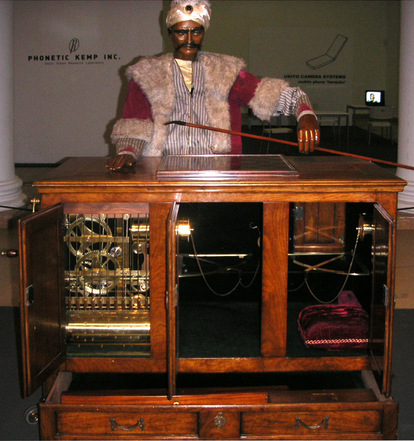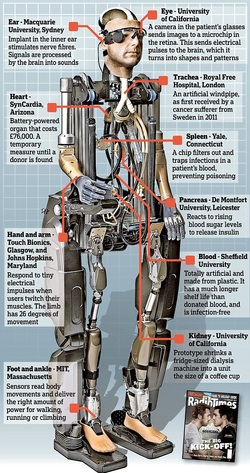Well I can safely say that Boy Genius is one of the only books that I've ever liked reading as an assignment. If I had found this book just by myself, I would probably have never read it so I'm glad that this class opened me up to this book. First, I really enjoyed learning about some Korean history since history in general is not my forte and I always enjoy learning new things. I also thought it was interesting about how Park incorporated some surrealism into the book and while I was reading, I definitely felt very...weird at some parts. One of the biggest things I can't get over, however, is the fact that this doctor can change the entire appearance of a person and Boy Genius just meets Judy all of a sudden and only because they look different do they actually fall in love. I don't know, I just can't wrap my mind around it. But anyways, I really loved this book and I'm looking forward to reading the other ones.
-Anthony Chang
Hey Everyone,
I wanted to write a short, fairly random, reflection on today’s lecture because I found it really interesting. I have absolutely no knowledge of Korean history, so I’m glad I was exposed to something entirely new today. Learning about President Park and the conditions of South Korea at the time provided me with valuable context for Boy Genius. Now I’m even more excited to finish the story. On a side note, I thought the video was done very well. It was informative and engaging at the same time.
Not knowing any Korean history made me realize how little I know about Asian history in general. I was required to take a full year Western Civilizations course in order to graduate from my high school, but I hardly learned any Asian history. I learned a little bit in my Chinese class, but never in a formal history setting. I guess my lack of Asian history knowledge could support the protest about ethnic studies that we learned about last week. This realization made me feel a little bit disappointed in myself because I like to think of myself as a cultured person, yet I’m neglecting the history of an entire group of people, a group that ethnically I belong to.
My lack of knowledge made me think about being ignorant. When people are ignorant, they don’t have any trustworthy information so they tend to rely on stereotypes to label people. I’ve always found the concept of stereotypes fascinating, so here’s a video by a Korean comedian on Asian stereotypes that I thought was funny. Enjoy!
- Michelle Fong
 About The Author:Leah Lakshmi Piepzna-Samarasinha is an activist and a writer whose works have largely been based on various forms of oppression targeting people of different racial groups, including South Asians, and members of the LGBT community. From 2009-2010, she served as a part time professor as part of UC Berkeley’s Poetry for the People arts activism program. Her poetry is often very personal, often discussing her own experiences as a homosexual, disabled Sri Lankan woman. Since 1997 she has been struggling with bouts of chronic pain, and she highlights this experience in the following poem that I have taken from her blog at brownstargirl.org. crip non haiku he says you didn't seem like yourself that day i say this is my self crunching my forehead to stay in the palace of words lamaaze breathing through pain spikes asking for a vicodin with a shaking hand Analysis: In the first line, Leah paints a picture of how she is treated differently on particularly painful days. She goes on to assert that her illness is a part of her identity by expressing that pain is her natural state of being. She then depicts the extent of her pain by comparing it to giving birth. Writing Prompt: Imagine if you had to deal with disabling pain on a regular basis. How would you feel? Would it motivate you and give you a new reason to be more of an activist and to be more involved in your community? Or would it discourage you from participating? -- Mark Craig
 This is a modern reconstruction, the original was destroyed in a fire. This is a modern reconstruction, the original was destroyed in a fire. The patron robot for today is The Turk. It was a “Mechanical Automaton” constructed in 1770 by Wolfgang von Kempelen in order to impress the Empress of Austria. It supposedly could play a game of chess against a human player. However, the robot wasn’t really an automaton, but more like a really elaborate puppet that a skilled chess player controlled from underneath the chessboard. The hoax was eventually discovered, but not until more than 50 years later.
I think that The Turk is interesting because it raises the question of what actually constitutes a robot. Is it something that can move or even think on its own? Or is it something that simply accomplishes a task given a source of power?
PROMPT: What do you think defines a robot? Is The Turk a robot? Why or why not?
--Mark Craig
After thinking for a while on what to share with you guys, I remembered watching this video a few years back. It's really amazing how we can create a robot that could not only sense pressure on its body, but react accordingly in a humanistic way. Choppy robotic voice aside, she would be nearly as human as anybody else. She can give directions to the restroom, understand when pressure begins to hurt, and even know the appropriate and inappropriate places to touch.
(on an immature note, "I do not like it when you touch my breasts.")
Anyway, I'm just impressed by how close we are to creating a being that could break the line between humanoid and human.
- Judy Wang
Hey Everyone!
During this weekend, I finished reading Boy Genius and to be honest, it's one of the best books I've read for a while. One of the things that caught my eye and that was interesting was the use of magic and science by Dr. Namumanu on Boy Genius. I found it fascinating the way she used science to change Boy Genius physically and it seemed magical as well. Not only this, but it transformed Boy Genius into a different person too on the personality level. It looked like as if his confidence was risen and he was more accepted by society. It's crazy! Perhaps in the future, operations like these would be available, who knows? I just wanted to share that with everyone and hopefully everyone enjoyed the book like I did. :)
-Anthony Meza
Hey Guys!
In lecture last week we discussed the picture of an asian immigrant with about eight arms doing all the work and hard labor while a bunch of white men stood outside doing nothing. Margaret also showed us a quote regarding how asian american immigrants were seen then, and still even today in our contemporary society, as non-human because their skin color, cultural customs, and beliefs aren't necessarily in sync with what white american society has determined to be the "norm." To me, it seems that if you aren't within the societal norm of society, you are outcasted, stereotyped, and even seen as an alien, both literally and metaphorically.
I just wanted to share this video with you guys, because I think it creatively speaks about the racism and stereotypes the individual in the video and we have all seen. My favorite line from his spoken word is towards the end when he says: "because colorblind is another way to say we don't care." I love the play on words he uses when he talks about colorblindness in reference to being colorblind to skin color an indicator of race. Usually we think of colorblindness as not being able to see purple or green, but the man in the video gives the word a deeper meaning in relation to the topic of race. Colorblindness may actually be a good thing in this case, meaning that you don't discriminate against races or skin color. what do you guys think?
Question for you guys though: he says in that line "colorblind is another way to say we don't care"---do you guys think he means if you are colorblind to races, you don't discriminate?
I guess interpretation is open and subjective. :)
-Abigail Huliganga
Many thanks to Margaret for providing us with the wonderful opportunity to view this performance. It was definitely a wonderful night filled with laughter, music, passion and yes, food. Above is a youtube video for those that weren't able to make it to the Friday night's performance. This video displays the original sketches of the first part of Francis Wong's performance.
Francis Wong began the night by explaining the Third World Strike. which happened on the Berkeley campus in 1969. His actual performance piece was written in memory of his oldest brother, who was an immigrant student from Hong Kong. Through combining the saxophone with drums, the bass, the guitar, and the Chinese instrument, yangqin, Francis Wong was able to demonstrate the many internal struggles that his brother faced, one which included identity struggles. As an Asian, his brother faced the troubles of fitting into the crowd and of adjusting to the new life in America. Despite of all that, he was still able to find his passion in kongfu. Though Wong's older brother died of a drug overdose, he still remains an inspiration to Francis Wong.
The fact that as his brother, Francis was able to see the beauty of combining the two different cultures (as we can see when he combines western instruments and traditional Asian instruments) and learn to move on, shows that he carries great optimism. Despite his brother's bleak end, Francis was able to find light in his life and continue to believe in tomorrow. I think that was what touched many of our hearts that Friday night.
Anyways, you should see for yourself. Hope you enjoy his music as much as I did!
--Jessie Wu
I wanted to share with you all an Asian American poet named Fong Tran who performs spoken word. He never thought he would see himself writing poetry until he began writing poetry for a class he took. He felt like the words just flowed through him when he wrote something that was meaningful to him. Fong is a really cool guy. I met him through an Asian American conference, and he held a workshop about identity and finding yourself. One interesting fact about him is that he loves Batman. Anyways, you all should check him out.
-Jason
|



 RSS Feed
RSS Feed